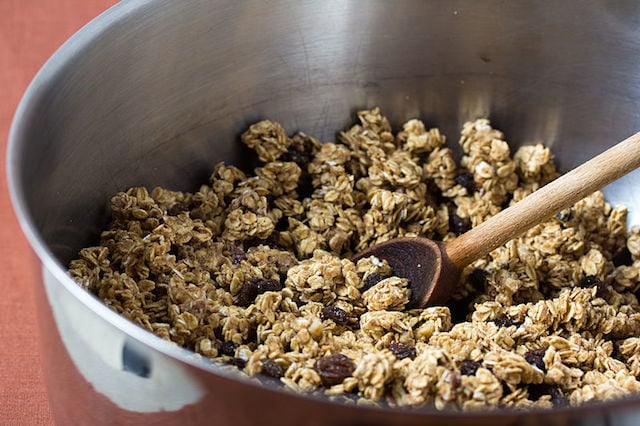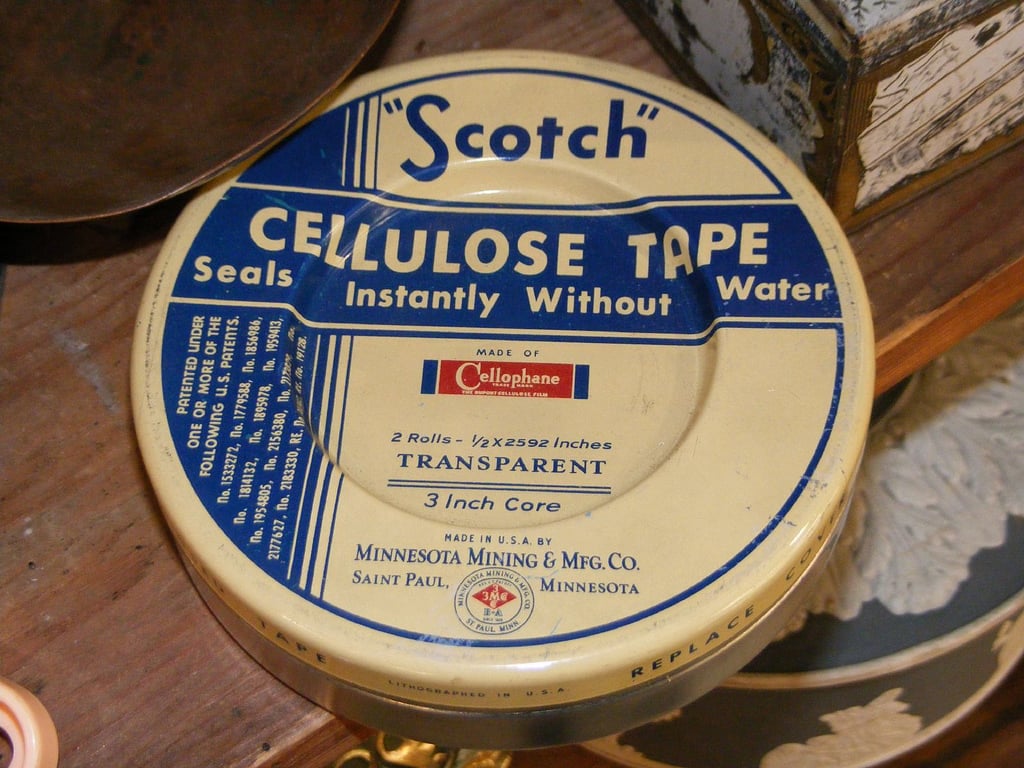12 Common Words That You Didn’t Know Were Brand Names
Have you ever eaten granola in the morning? Tossed a frisbee? Ridden up an escalator? If so, you might be surprised to know that you’ve inadvertently been using brand names of products with registered trademarks. Indeed, granola, frisbee, and escalator are proprietary eponyms, which means that they all began as brand names before they entered our lexicon as generic nouns. Here’s ten seemingly common words that actually refer to brand names.
1. Jello
Generic name: gelatin dessert
In 1897, Kraft Foods invented Jell-O, a brand of gelatin-based snacks that come in a variety of flavors. But unlike the dessert, which is jiggly and malleable, the word “jello” has become a firmly ingrained part of our everyday lexicon. Indeed, it’s unlikely that college students will start referring to jello shots as “gelatin dessert shots” any time soon.
2. Escalator
Generic name: moving staircase
Another 1897 invention, the escalator is actually a portmanteau of the words “scala” (Latin for “step”) and “elevator”, coined by the Otis Elevator Company. Though escalators are commonplace now, they caused quite a splash when they were introduced: an early account in a European department store describes customers as so “unnerved” by the experience that they had to be “revived with smelling salts and cognac”.

Image via Stig Nygaard / Wikipedia
3. Bubble wrap
Generic name: sealed air packaging
Bubble wrap keeps fragile items safe in the mail, and is fun to pop. We owe both the concept and the word to the Sealed Air Corporation, which invented bubble wrap in 1957.
4. Frisbee
Generic name: flying disc
“Wanna go toss the flying disc?” This request may sound odd, though it’s technically correct, as “frisbee” actually refers to a brand that represents only a fraction of flying discs worldwide. Indeed, Frisbee has been a trademark of the Wham-O toy company since 1957.
5. Highlighter / Hi-Liter
Generic name: felt-tip writing device
In 1963, Massachusetts-based Carter’s Ink Company invented the Hi-Liter, a felt tip writing device that adds emphasis to text. Now, the term “highlighter” has become so common that it’s used both as a noun (e.g., “pass me the highlighter”) and a verb (e.g., “highlight a passage in a book”).
6. Kitty litter
Generic name: cat litter
Marketing guru Ed Lowe first invented cat litter in 1947, calling his product “Kitty Litter”. The catchy name stuck, and the market grew rapidly. Though the trademark has become genericized, you’ll still see companies use terms like “cat litter” or “clumping litter” to avoid infringement.
How much do you know about the English language? Find out by taking a free online English level test!
7. Granola
Generic name: whole grain cereal
A favorite breakfast cereal, granola consists of whole grains that are toasted and lightly sweetened. It began as a trademark of Kellogg’s in the late 19th century, but just as granola’s ingredients have expanded — now often including nuts and dried fruits — its use in our lexicon has, too.

Image via Vegan Baking / flickr
8. Mace
Generic name: aerosol self-defense spray
In 1965, Allan Lee Litman registered the trademark Chemical Mace for his product, which offered self-defense in a spray can. Popularly marketed to women in shady areas, mace is now used as an umbrella term to encompass a variety of similar products.
9. Styrofoam
Generic name: closed-cell extruded polystyrene foam
The Dow Chemical Company technically owns the rights to the popular packaging filler known as “styrofoam”. Just as styrofoam itself has saved countless delicate items, the word “styrofoam” has saved us English speakers from having to refer to the stuff as “closed-cell extruded polystyrene foam”.
10. Velcro
Generic name: hook-and-loop fastener
Velcro has an interesting history: it was invented by a Swiss engineer who was inspired by burrs that stuck to his clothes. Since then, it was acquired by the Velcro company, and is registered as a trademark to them.
11. Scotch tape
Generic name: transparent adhesive tape
Manufactured by 3M, Scotch tape was invented in 1930. In its 80+ years of existence, however, it’s found its way into mainstream vocabulary, and now is used to describe the transparent tape that’s ubiquitous at home and in the office.

Image via Improbcat / Wikipedia
12. Band-Aid
Generic name: adhesive bandage
It’s fairly well-known that “Band-Aid” is a brand name; however, that doesn’t stop us from using it instead of its clunky alternative, “adhesive bandage.” Indeed, surely you’ve heard somebody ask for a Band-Aid, but “Do you have an adhesive bandage for my paper cut?” is a decidedly odd request.
This list only scratches the surface of brand names that have entered our collective vocabulary. Honorable mentions include dumpster and ping pong, which also began their legacy as products. If nothing else, these proprietary eponyms show the flexibility of the English language, and how easily words can evolve from their origins.
